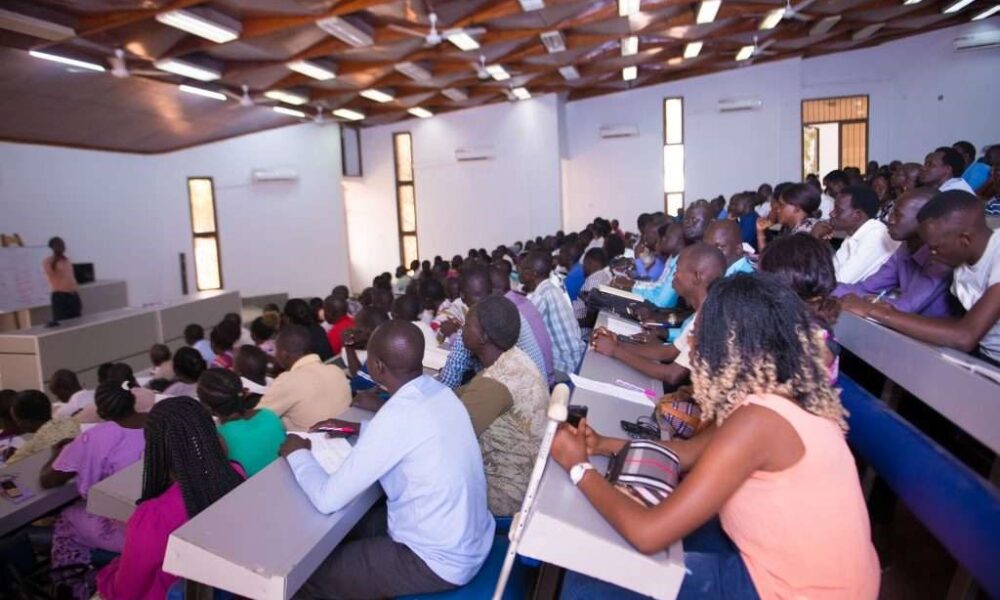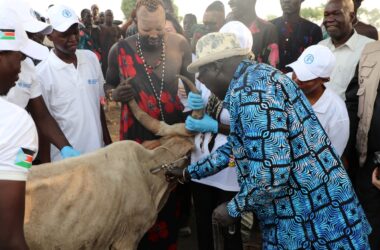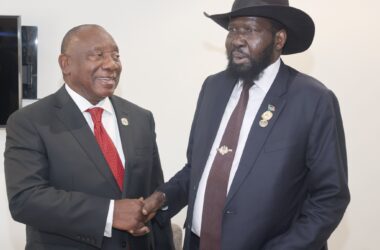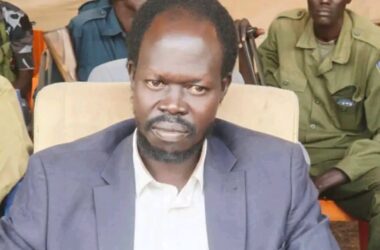By Yiep Jospeh
Ministry of Higher Education, Science, and Technology has refuted the alleged malpractices in the selection of students for scholarships outside the country.
Prof. Job Akuei Alith, the Director General for Admission and Chairperson of Scholarships Committee in the Ministry of Higher Education, denied the allegation while addressing journalists on Monday.
He was responding to the recent incident where a list of students selected for the Indian Government Scholarship received massive criticisms from the citizens, online.
Some of the citizens claimed that selection was biased, favouring specific individuals and communities.
According to online reports, students under the Indian Council for Cultural Relations (ICCR) scholarship, were not selected on merit nor performance.
“If this selection that was done lacked merit, then this is what the media should tell us: who did we leave out that has scored very high? This is higher education, and the advanced world is basing their education on merit, on best performance,” Prof. Akuei said.
He urged those complaining to challenge the ministry with evidence indicating malpractices involved during the process.
“If South Sudanese are not happy about merit, then we are here to be challenged. If there is anybody who had very high marks and we left him out, we are ready to accept the blame.”
He called on the citizens to reduce unnecessary criticism, adding that the selection of the candidates to go for scholarships was done online.
The undersecretary expressed that the selection went under several processes, from online sorting to the committee of scholars, hence was free from the claim of malpractice.
“The Indian universities had offered 457 admission letters to South Sudanese applicants, and the number of scholarships offered was only 30 vacancies to be distributed to 457 applicants,” he disclosed.
He added that the selection was based on performances, as it has been the only means of selecting the best students for scholarships.
“These are things that happen in a society that is not well informed, in a society that is not serious about investigating, balancing, and seeing whether this work was done based on some regulations or not,” he expressed.
Dr. Atem Kuir Jok, Director General for Planning and Budgeting and the Acting Director General for Training and External Relations in the Ministry of Higher Education, said the selection process for the scholarship was based on merit, rather than regional representation or gender.
“The chances were very tight, and these chances are going outside the country, and there will be no consideration outside or in India that X and Y were selected because they came from the less developed areas or South Sudan or these are gender-based affirmative actions; they will not be considered like that.” Kuir said,
On a separate note, persons with disabilities continue to express being discriminated against when it comes to scholarships outside the country.
Many individuals with disabilities celebrated when South Sudan adopted the United Nations (UN) Convention on the Rights of Persons with Disabilities on February 24, 2023.
However, people who are visually impaired claimed that young people with disabilities encounter numerous challenges in their lives, including a lack of education, scholarship opportunities, access to information, and discrimination.




